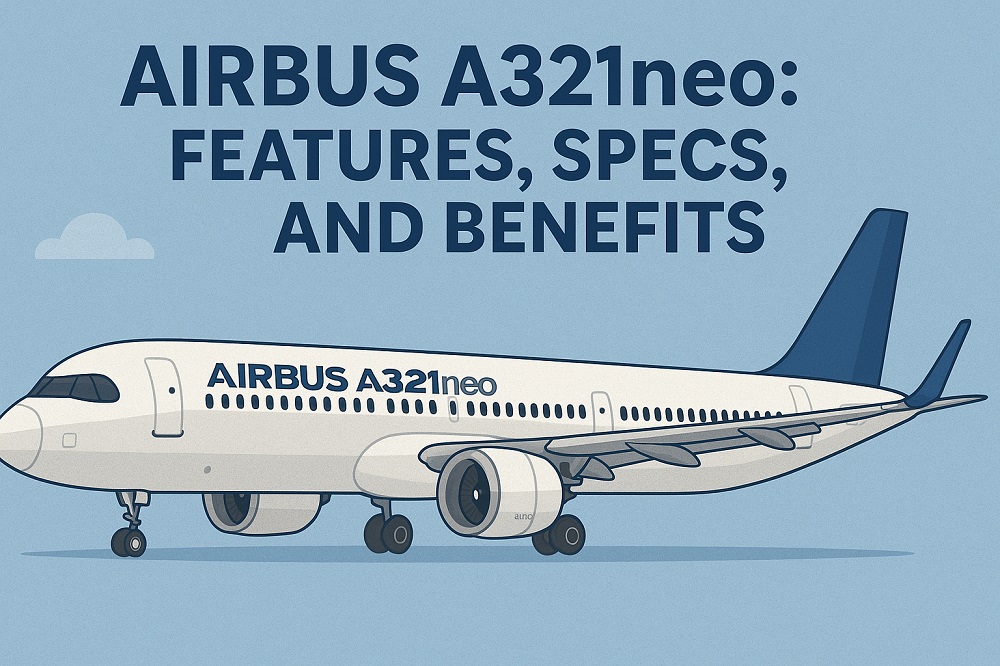Discover the revolutionary Airbus A321neo, a masterpiece of modern aviation that’s reshaping the commercial aircraft industry. From its cutting-edge technology to exceptional efficiency, this detailed guide explores how this aircraft is setting new standards in single-aisle aviation.
Overview of the Airbus A321neo
The Airbus A321neo represents the pinnacle of modern aviation engineering, serving as the latest evolution in Airbus’s A320 family. As the longest-fuselage member of this renowned aircraft series, it combines cutting-edge technology with exceptional efficiency to meet contemporary aviation demands.
- Passenger capacity: 180-220 (typical two-class configuration)
- Maximum capacity: 244 passengers (high-density layout)
- Route versatility: Ideal for both short-haul and medium-haul routes
- Key innovation: New engine option (neo) for enhanced performance
Introduction to the Airbus A321neo
The A321neo emerges as a game-changer in commercial aviation, building upon its predecessors’ success while introducing revolutionary advancements. With an impressive range of up to 4,000 nautical miles, it enables airlines to operate longer routes previously served by wide-body aircraft, offering versatility for both low-cost carriers and full-service airlines.
Development and Launch
Launched on June 13, 2014, the A321neo introduced groundbreaking features including:
- New ‘Cabin-Flex’ layout for enhanced passenger experience
- Larger doors for improved boarding efficiency
- Integration of new engine technologies
- Aerodynamic improvements with sharklets
Key Features of the Airbus A321neo
The A321neo stands out with its innovative features that set new standards for single-aisle aircraft. The aircraft incorporates advanced LED lighting technology for customizable cabin ambiance and slimmer sidewall panels for increased shoulder space.
Advanced Engine Technology
| Engine Options | Benefits |
|---|---|
| Pratt & Whitney PW1100G-JM | 15-20% reduced fuel consumption |
| CFM International LEAP-1A | Enhanced operational efficiency |
Innovative Cabin Design
- Largest overhead bins in single-aisle market
- Redesigned window bezels for enhanced views
- Integrated window shades
- Full LED lighting with dynamic scenarios
- Modern, streamlined aesthetic
Enhanced Aerodynamics
The A321neo features distinctive sharklets and refined aerodynamic elements that contribute to its exceptional performance. These improvements enable operations from various airports, including those with shorter runways or higher altitudes.
Specifications of the Airbus A321neo
Technical Specifications
- Maximum take-off weight: 97 tonnes (213,848 lb)
- Maximum zero fuel weight: 75.60 tonnes
- Fuel capacity: 32,940 liters
- Maximum operating Mach number: M0.82
- Engine thrust range: 24,500 to 35,000 lbf (109 to 156 kN)
Passenger Capacity and Comfort
The Airbus A321neo sets new standards in passenger accommodation with its flexible cabin configuration options. The aircraft offers:
- 180-220 passengers in typical two-class layout
- Up to 244 passengers in high-density configuration
- Customizable LED lighting systems
- Enhanced personal space with slim sidewall panels
- Redesigned window bezels for improved views
- Industry-leading overhead bin capacity
Range and Performance
| Performance Metric | Capability |
|---|---|
| Maximum Range | 4,000 nautical miles (7,400 kilometers) |
| Fuel Efficiency | 15-20% reduction vs. predecessors |
| Route Flexibility | Short to medium-haul operations |
Benefits of the Airbus A321neo
The Airbus A321neo represents a significant advancement in commercial aviation, combining innovative technology with operational efficiency. Its versatile design allows airlines to optimize their operations across various route networks, from short-haul to medium-haul flights, while maintaining exceptional performance standards.
- Flexible passenger configuration options
- Extended range capabilities
- Improved operational efficiency
- Advanced technological features
- Enhanced passenger comfort
Fuel Efficiency and Cost Savings
The A321neo delivers exceptional economic benefits through its advanced propulsion systems:
- 20% reduction in fuel consumption per seat
- Choice between CFM International LEAP-1A or Pratt & Whitney PW1100G-JM engines
- Additional 500 nautical miles range capability
- 2 tonnes increased payload capacity
- Optimized route network possibilities
Environmental Impact
| Environmental Feature | Improvement |
|---|---|
| CO2 Emissions | 20% reduction per seat |
| Noise Footprint | 50% reduction vs. previous generation |
Technological Advancements
- Innovative ‘Cabin-Flex’ layout system
- State-of-the-art avionics
- Advanced flight management systems
- Enhanced navigation capabilities
- Modern in-flight entertainment options
- Improved situational awareness tools
Read more:
- Airbus A320: Specifications, Features, and Seat Maps
- Airbus A340-300: Features, Specifications, and Performance
- Airbus Beluga: The Unique Transport Aircraft
- Airbus A340-600: Features, Specifications, and Performance
- Airbus A350: Features, Specs, and Innovations
- Airbus A319: Specifications, Seat Maps, and Features
- Airbus A321: Specifications, Features, and Seat Maps

